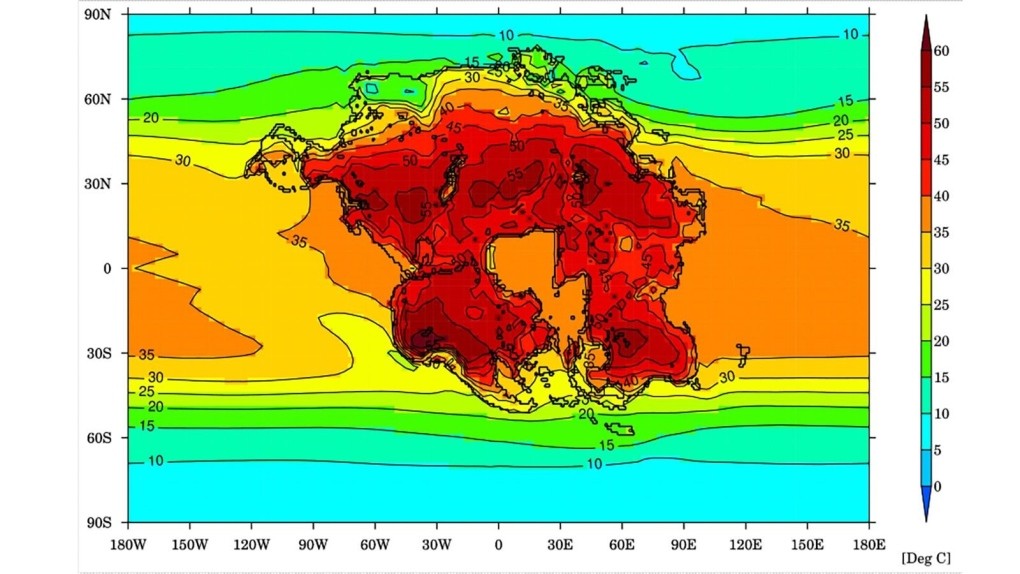30/09/2023
30/09/2023

NEW YORK, Sept 30, (Agencies): In a forecast looking 250 million years into the future, researchers predict that the emergence of a new supercontinent, Pangea Ultima, could lead to the extinction of humans and all mammals. Scientists from the University of Bristol used advanced supercomputer climate models to anticipate the intensification of climate extremes resulting from the eventual merging of Earth's continents. Their projections depict a world that would become exceptionally hot, dry, and inhospitable for mammals, including humans, which are ill-suited to prolonged exposure to extreme heat.
Through simulations of temperature, wind, rain, and humidity patterns for this future supercontinent, coupled with models of tectonic plate movement, ocean chemistry, and biology, the researchers calculated rising carbon dioxide levels. The formation of Pangea Ultima would trigger more frequent volcanic eruptions, releasing carbon dioxide into the atmosphere, thereby intensifying the greenhouse effect. Furthermore, the sun would grow brighter, emitting increased energy and further warming the planet. These combined factors, referred to as the "continentality effect," would lead to widespread temperatures ranging from 40 to 50 degrees Celsius (104 to 122 degrees Fahrenheit) and even more extreme daily variations, exacerbated by high humidity levels. Such conditions would prove fatal for humans and numerous other species, as they would be unable to cool their bodies through sweat. The heightened heat would also create an environment devoid of food and water sources for mammals.
While there are inherent uncertainties in making predictions so far into the distant future, the researchers paint a grim picture, estimating that only 8% to 16% of the land on the supercontinent would remain habitable for mammals. Furthermore, if current fossil fuel emissions persist, the concentration of carbon dioxide in the atmosphere could double even sooner than the predicted timeline.
Despite this dire outlook, the study's authors emphasize that it is crucial not to become complacent in addressing today's pressing climate crisis, driven by human-generated greenhouse gas emissions. Extreme heat already threatens human health and well-being today, underscoring the urgency of transitioning to net-zero emissions as quickly as possible. This study serves as a stark reminder of the necessity of immediate action to mitigate the consequences of climate change.
The trajectory of climate change is set to profoundly transform life on Earth, affecting billions of people and other species. Last year, a major UN-backed report warned that unless global warming is dramatically slowed, many will reach a point where they can no longer adapt to these changes, jeopardizing their survival.
Scientists have long emphasized the importance of keeping global warming below 1.5 degrees Celsius above pre-industrial levels. However, the window for reducing reliance on fossil fuels and averting catastrophic consequences is rapidly closing. The most recent mass extinction event occurred around 66 million years ago when an asteroid impact wiped out the dinosaurs and a significant portion of Earth's life forms.


